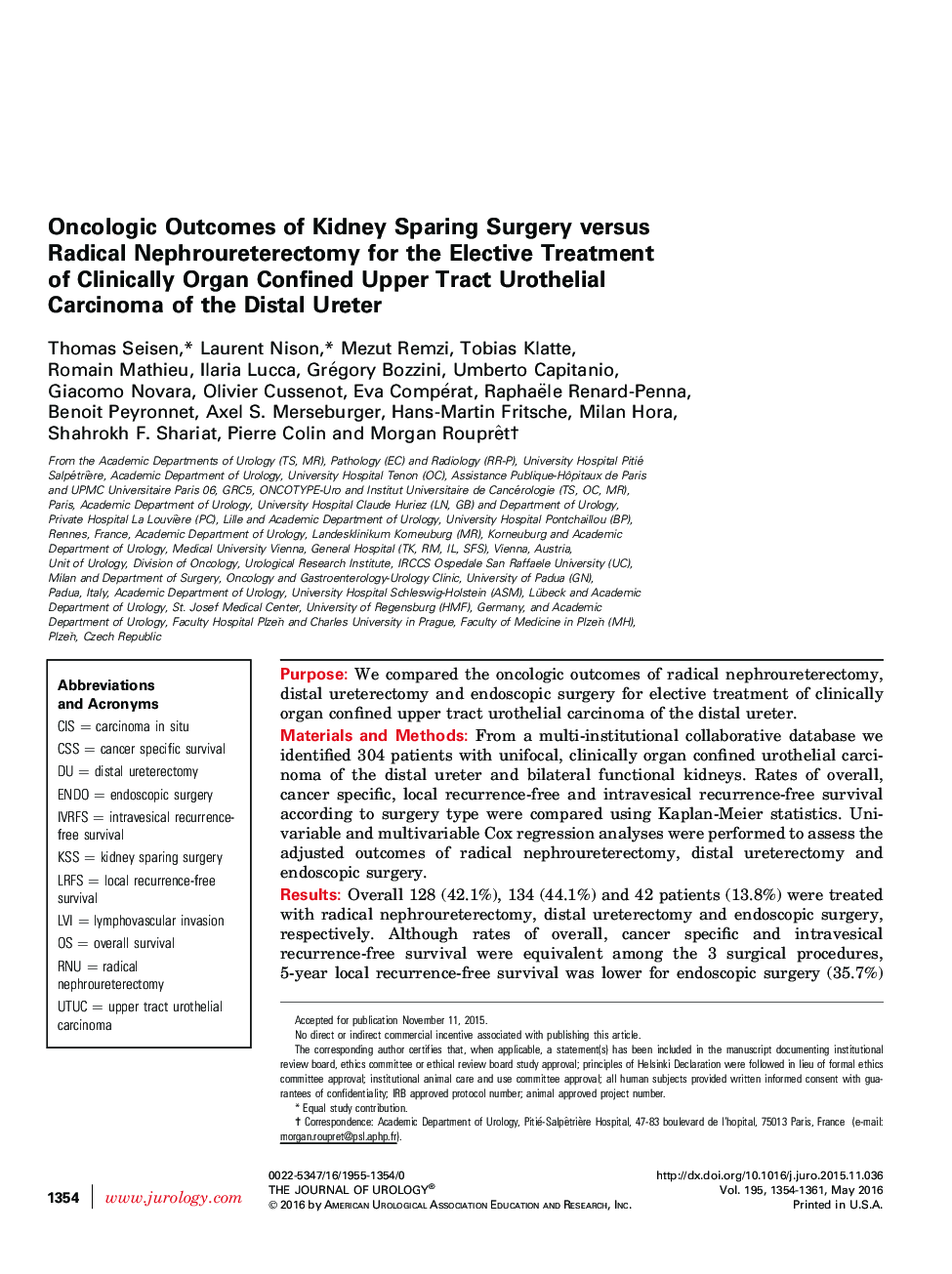| کد مقاله | کد نشریه | سال انتشار | مقاله انگلیسی | نسخه تمام متن |
|---|---|---|---|---|
| 3858930 | 1598876 | 2016 | 8 صفحه PDF | دانلود رایگان |
PurposeWe compared the oncologic outcomes of radical nephroureterectomy, distal ureterectomy and endoscopic surgery for elective treatment of clinically organ confined upper tract urothelial carcinoma of the distal ureter.Materials and MethodsFrom a multi-institutional collaborative database we identified 304 patients with unifocal, clinically organ confined urothelial carcinoma of the distal ureter and bilateral functional kidneys. Rates of overall, cancer specific, local recurrence-free and intravesical recurrence-free survival according to surgery type were compared using Kaplan-Meier statistics. Univariable and multivariable Cox regression analyses were performed to assess the adjusted outcomes of radical nephroureterectomy, distal ureterectomy and endoscopic surgery.ResultsOverall 128 (42.1%), 134 (44.1%) and 42 patients (13.8%) were treated with radical nephroureterectomy, distal ureterectomy and endoscopic surgery, respectively. Although rates of overall, cancer specific and intravesical recurrence-free survival were equivalent among the 3 surgical procedures, 5-year local recurrence-free survival was lower for endoscopic surgery (35.7%) than for nephroureterectomy (95.0%, p <0.001) or ureterectomy (85.5%, p = 0.01) with no significant difference between nephroureterectomy and distal ureterectomy. On multivariable analyses only endoscopic surgery was an independent predictor of decreased local recurrence-free survival compared to nephroureterectomy (HR 1.27, p = 0.001) or distal ureterectomy (HR 1.14, p = 0.01). Distal ureterectomy and endoscopic surgery did not significantly correlate to cancer specific or intravesical recurrence-free survival. However, when adjustment was made for ASA® (American Society of Anesthesiologists®) score, distal ureterectomy (HR 0.80, p = 0.01) and endoscopic surgery (HR 0.84, p = 0.02) were independent predictors of increased overall survival, although no significant difference was found between them.ConclusionsBecause of better oncologic outcomes, distal ureterectomy could be considered the elective first line treatment of clinically organ confined urothelial carcinoma of the distal ureter.
Journal: The Journal of Urology - Volume 195, Issue 5, May 2016, Pages 1354–1361
